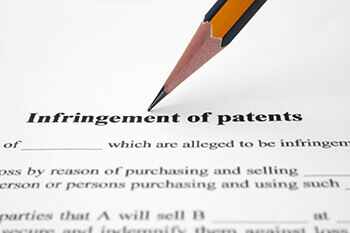Intellectual Property Law
DTSA – Defend Trade Secrets Act
The Defend Trade Secrets Act (DTSA) created a federal, private, civil cause of action for trade-secret misappropriation in which “[a]n owner of a trade secret that is misappropriated may bring a civil action . . . if the trade secret is related to a product or service used in, or intended for use in, interstate or foreign commerce.” Defend Trade Secrets Act of 2016, S. 1890, 114th Cong. § 2 (2016).
The DTSA defines trade secret as “all forms and types of financial, business, scientific, technical, economic, or engineering information,” if “(A) the owner thereof has taken reasonable measures to keep such information secret; and (B) the information derives independent economic value, actual or potential, from not being generally known to, and not being readily ascertainable through proper means by, another person who can obtain economic value from the disclosure or use of the information.”
The DTSA at 18 U.S.C. § 1836(b)(1) allows a plaintiff to bring a civil action for misappropriation of a trade secret only if the “trade secret is related to a product or service used in, or intended for use in, foreign or interstate commerce”—a fairly easy showing in today’s world. Under the DTSA at section 1836(b)(3)(B)(5), “misappropriation” is defined much like it is under the UTSA and means: (a) acquisition by a person who knows (or has reason to know) the trade secret was acquired by improper means; or (b) disclosure or use of the trade secret by a person who used “improper means” to acquire the trade secret or had certain knowledge. Notably, the term “improper means” does not include reverse engineering or independent derivation under section 1836(b)(3)(B)(6).

Catherine Rajwani
Principal Attorney
PHONE: 508-393-9244
EMAIL: crajwani@harborlaw.com
Catherine Rajwani is an intellectual property and business litigation attorney.
Ms. Rajwani handles a full range of intellectual property and business issues in her practice including patent, trademark, copyright, trade secret, contract and business tort disputes. She has participated in all phases of litigation, from pre-litigation counseling through trial and appeal, in federal courts throughout the country. She is also skilled in alternative dispute resolution proceedings.
Find out more about issues in our related practice areas
Intellectual Property Law
Trademark Protection
Trade Secrets
Copyrights
Patents
Intellectual Property Law
Insights, opinions and decisions you should know about

Defend Trade Secrets Act: Two Years Later
It has been more than two years since President Obama signed the Defend Trade Secrets Act (DTSA) into law, which created a federal, private, civil cause of action for trade-secret misappropriation in which “[a]n owner of a trade secret that is misappropriated may...

Where Do You Sue for Patent Infringement? – Proper Venue Post ‘TC Heartland’
In May of 2017, the Supreme Court unanimously reversed the Federal Circuit’s 25-year-old precedent on venue for corporate defendants.[1] Venue is the proper or most convenient location for trial of a case, and is governed by state and federal statutes. The 10-page...

Cost-Effective Mechanisms for Enforcing Intellectual Property Rights
In my practice, I counsel small and midsize business clients, many of which are astute with regard to securing their intellectual property rights. They have federally registered their trademarks with the U.S. Patent and Trademark Office, secured a portfolio of patents...

How Do I Defend a Patent Lawsuit?
The Top 5 Ways to Defend Your Company in Patent Infringement Litigation You discover that your company has been sued for patent infringement. After reviewing the patent cited in the complaint, you determine that the technology described relates to your company’s...
Get in touch with us.
Learn more about how we can help.